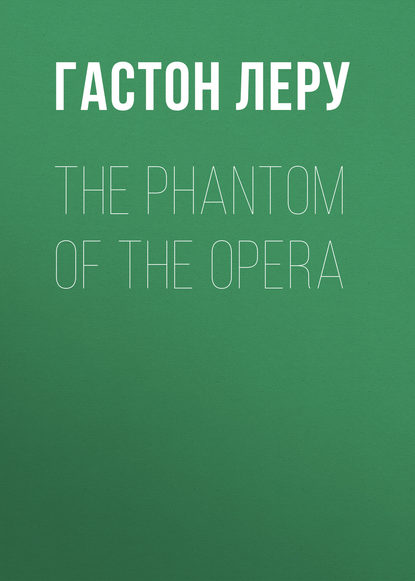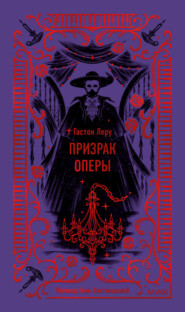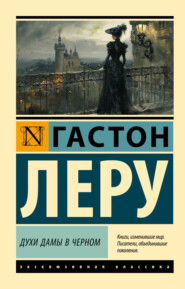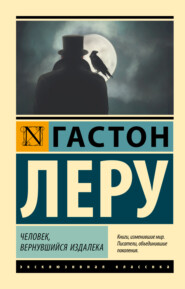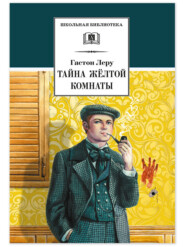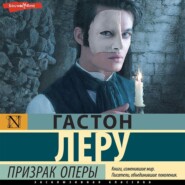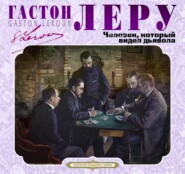По всем вопросам обращайтесь на: info@litportal.ru
(©) 2003-2024.
✖
The Phantom of the Opera
Автор
Год написания книги
2018
Настройки чтения
Размер шрифта
Высота строк
Поля
But nobody answered. Then feeling all eyes upon her, watching her last movement, she made an effort to show courage, and said very loudly:
"Is there any one behind the door?"
"Oh, yes, yes! Of course there is!" cried that little dried plum of a Meg Giry, heroically holding Sorelli back by her gauze skirt. "Whatever you do, don't open the door! Oh, Lord, don't open the door!"
But Sorelli, armed with a dagger that never left her, turned the key and drew back the door, while the ballet-girls retreated to the inner dressing-room and Meg Giry sighed:
"Mother! Mother!"
Sorelli looked into the passage bravely. It was empty; a gas-flame, in its glass prison, cast a red and suspicious light into the surrounding darkness, without succeeding in dispelling it. And the dancer slammed the door again, with a deep sigh.
"No," she said, "there is no one there."
"Still, we saw him!" Jammes declared, returning with timid little steps to her place beside Sorelli. "He must be somewhere prowling about. I shan't go back to dress. We had better all go down to the foyer together, at once, for the 'speech,' and we will come up again together."
And the child reverently touched the little coral finger-ring which she wore as a charm against bad luck, while Sorelli, stealthily, with the tip of her pink right thumb-nail, made a St. Andrew's cross on the wooden ring which adorned the fourth finger of her left hand. She said to the little ballet-girls:
"Come, children, pull yourselves together! I dare say no one has ever seen the ghost."
"Yes, yes, we saw him—we saw him just now!" cried the girls. "He had his death's head and his dress-coat, just as when he appeared to Joseph Buquet!"
"And Gabriel saw him too!" said Jammes. "Only yesterday! Yesterday afternoon—in broad day-light–"
"Gabriel, the chorus-master?"
"Why, yes, didn't you know?"
"And he was wearing his dress-clothes, in broad daylight?"
"Who? Gabriel?"
"Why, no, the ghost!"
"Certainly! Gabriel told me so himself. That's what he knew him by. Gabriel was in the stage-manager's office. Suddenly the door opened and the Persian entered. You know the Persian has the evil eye–"
"Oh, yes!" answered the little ballet-girls in chorus, warding off ill-luck by pointing their forefinger and little finger at the absent Persian, while their second and third fingers were bent on the palm and held down by the thumb.
"And you know how superstitious Gabriel is," continued Jammes. "However, he is always polite. When he meets the Persian, he just puts his hand in his pocket and touches his keys. Well, the moment the Persian appeared in the doorway, Gabriel gave one jump from his chair to the lock of the cupboard, so as to touch iron! In doing so, he tore a whole skirt of his overcoat on a nail. Hurrying to get out of the room, he banged his forehead against a hat-peg and gave himself a huge bump; then, suddenly stepping back, he skinned his arm on the screen, near the piano; he tried to lean on the piano, but the lid fell on his hands and crushed his fingers; he rushed out of the office like a madman, slipped on the staircase and came down the whole of the first flight on his back. I was just passing with mother. We picked him up. He was covered with bruises and his face was all over blood. We were frightened out of our lives, but, all at once, he began to thank Providence that he had got off so cheaply. Then he told us what had frightened him. He had seen the ghost behind the Persian, THE GHOST WITH THE DEATH'S HEAD just like Joseph Buquet's description!"
Jammes had told her story ever so quickly, as though the ghost were at her heels, and was quite out of breath at the finish. A silence followed, while Sorelli polished her nails in great excitement. It was broken by little Giry, who said:
"Joseph Buquet would do better to hold his tongue."
"Why should he hold his tongue?" asked somebody.
"That's mother's opinion," replied Meg, lowering her voice and looking all about her as though fearing lest other ears than those present might overhear.
"And why is it your mother's opinion?"
"Hush! Mother says the ghost doesn't like being talked about."
"And why does your mother say so?"
"Because—because—nothing—"
This reticence exasperated the curiosity of the young ladies, who crowded round little Giry, begging her to explain herself. They were there, side by side, leaning forward simultaneously in one movement of entreaty and fear, communicating their terror to one another, taking a keen pleasure in feeling their blood freeze in their veins.
"I swore not to tell!" gasped Meg.
But they left her no peace and promised to keep the secret, until Meg, burning to say all she knew, began, with her eyes fixed on the door:
"Well, it's because of the private box."
"What private box?"
"The ghost's box!"
"Has the ghost a box? Oh, do tell us, do tell us!"
"Not so loud!" said Meg. "It's Box Five, you know, the box on the grand tier, next to the stage-box, on the left."
"Oh, nonsense!"
"I tell you it is. Mother has charge of it. But you swear you won't say a word?"
"Of course, of course."
"Well, that's the ghost's box. No one has had it for over a month, except the ghost, and orders have been given at the box-office that it must never be sold."
"And does the ghost really come there?"
"Yes."
"Then somebody does come?"
"Why, no! The ghost comes, but there is nobody there."
The little ballet-girls exchanged glances. If the ghost came to the box, he must be seen, because he wore a dress-coat and a death's head. This was what they tried to make Meg understand, but she replied:
"That's just it! The ghost is not seen. And he has no dress-coat and no head! All that talk about his death's head and his head of fire is nonsense! There's nothing in it. You only hear him when he is in the box. Mother has never seen him, but she has heard him. Mother knows, because she gives him his program."
Sorelli interfered.
"Giry, child, you're getting at us!"
Thereupon little Giry began to cry.
"I ought to have held my tongue—if mother ever came to know! But I was quite right, Joseph Buquet had no business to talk of things that don't concern him—it will bring him bad luck—mother was saying so last night–"





